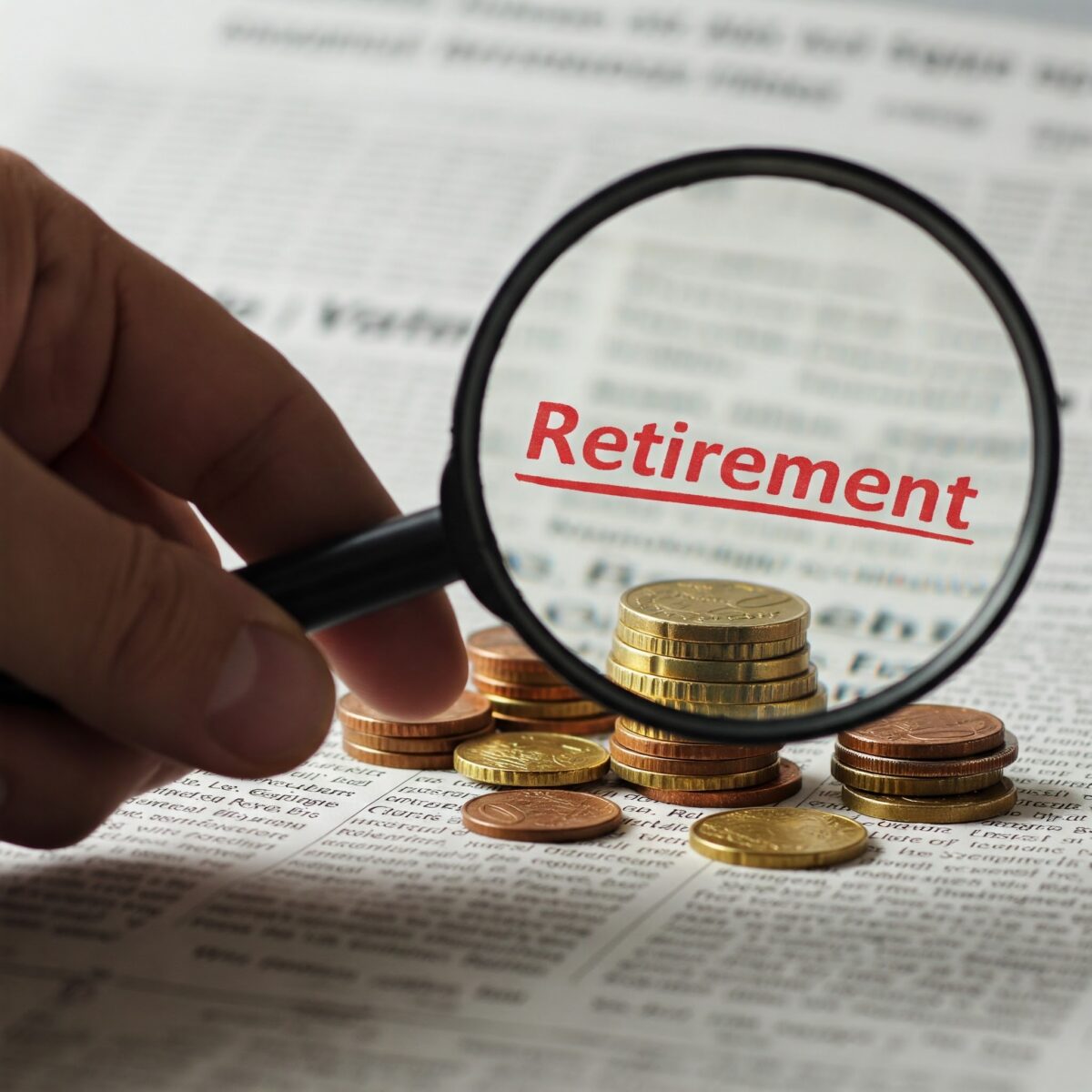Riding Out the Storm: A Gen X Guide to Thriving in Retirement
April 2025. Halifax, England. The headlines scream of economic turmoil. Inflation, a beast many thought tamed, is stirring again. Wars rage in distant lands, disrupting supply chains and fueling uncertainty. Tariffs, those blunt instruments of trade, threaten to choke off growth. Here in the UK, the legacy of COVID-era money printing by central banks is colliding head-on with these global shocks, creating a perfect storm.
Consider this: A recent survey reveals that 75% of UK adults over 55 are now “very concerned” about the impact of the current economic climate on their retirement savings. That’s a chilling statistic, isn’t it? For Generation X, those born between the mid-1960s and early 1980s, many of whom are now in their late 40s and 50s, this unfolding crisis presents a unique challenge. The comfortable retirement they envisioned, built on decades of hard work and careful saving, suddenly feels precarious.

Why is the UK economy facing such headwinds, and why does it disproportionately hurt the over-55s and those already in retirement? Let’s break it down.
The UK’s Economic Tightrope Walk
Several interconnected factors are contributing to the current economic struggles in the United Kingdom:
- The Lingering Shadow of COVID-19: The pandemic triggered unprecedented levels of government spending and quantitative easing (printing money) to support businesses and individuals. While necessary at the time the amount printed was excessive and prolonged, this has contributed to inflationary pressures as the economy reopened and demand surged. All that extra money sloshing around? It devalued your existing retirement savings.
- Global Geopolitical Instability: The ongoing conflicts and rising international tensions are disrupting energy markets, increasing commodity prices, and creating uncertainty for businesses. Think about the price of petrol at the pump or the rising cost of your energy bills – these are direct consequences of global instability.
- Supply Chain Disruptions: The pandemic exposed vulnerabilities in global supply chains. Now, geopolitical issues and trade barriers are exacerbating these problems, leading to shortages of goods and higher prices for consumers. Remember when you couldn’t find certain items on supermarket shelves? That’s a supply chain issue biting.
- Inflationary Pressures: A confluence of factors – the money supply increase, rising energy costs, and supply chain bottlenecks – has driven inflation to levels not seen in decades. This erodes the purchasing power of savings and makes everyday living more expensive. Your pension income simply doesn’t stretch as far.
- Stagnant Wage Growth: While inflation has soared, wage growth for many has not kept pace, meaning real incomes are falling. This is particularly tough for those on fixed incomes, like many retirees. Imagine trying to pay for groceries when your pension has stayed the same but the prices have jumped!
- The Impact of Tariffs and Trade Barriers: Evolving global trade relationships have introduced new complexities and costs for businesses, potentially impacting economic growth and contributing to higher prices. Businesses facing higher import costs often pass those costs onto consumers.
A Perfect Storm for the Over-55s and Retirees
This economic maelstrom is particularly damaging for those over 55 and already in retirement for several crucial reasons:
- Erosion of Savings: Inflation directly diminishes the real value of their accumulated savings and pensions. A fixed pension income buys less and less each month.
- Reduced Investment Returns: Economic uncertainty often leads to lower returns on investments, making it harder for pension pots to grow or even maintain their value. The stock market can be a bumpy ride during turbulent times.
- Increased Cost of Living: Rising energy bills, food prices, and care costs disproportionately affect those on fixed incomes. These are essential expenses that can’t easily be cut back.
- Longer Life Expectancy: People are living longer, meaning their retirement savings need to last for a more extended period. Economic downturns that deplete savings early in retirement can have devastating long-term consequences.
- Limited Earning Potential: For those approaching or in retirement, the ability to significantly increase their income through employment is often limited. Finding a new job in your late 50s or 60s isn’t always straightforward.
- Psychological Impact: The anxiety and stress of seeing their hard-earned savings dwindle can take a significant toll on the mental well-being of this age group. The fear of running out of money in retirement is a heavy burden.
But hold on! Before you throw your hands up in despair, remember this: Generation X is nothing if not resilient! We’ve navigated economic ups and downs before. We’ve adapted to technological shifts and cultural changes. And we can ride out this storm too. It requires a proactive and strategic approach.

Here are nine powerful ways that the over-55s in the UK can protect themselves from current and medium-term economic problems and ensure their retirement finances can still deliver the lifestyle they desire:
1. Take a Hard Look at Your Budget and Cut Unnecessary Spending
This might seem obvious, but it’s the bedrock of financial resilience. Now is the time for a forensic examination of your outgoings.
- Track Your Spending: Use budgeting apps, spreadsheets, or even a notebook to meticulously record where your money is going for at least a month. You might be surprised by those small, regular expenses that add up. That daily takeaway coffee? Those impulse online purchases? They can take a significant bite out of your finances.
- Categorise Expenses: Divide your spending into essential (housing, food, utilities, healthcare) and non-essential (entertainment, dining out, subscriptions).
- Identify Areas for Reduction: Be honest with yourself. Which non-essential expenses can you reduce or eliminate? Could you downsize your TV package? Bring lunch from home more often? Review those multiple streaming subscriptions – do you really need them all?
- Negotiate Bills: Don’t be afraid to haggle with your utility providers, internet company, and insurance providers. You might be able to secure a better deal just by asking! Comparison websites are your friend here. For example, you could call your broadband provider and say you’ve seen a cheaper deal elsewhere – they might just match it.
- Consider Energy Efficiency: Invest in energy-saving measures for your home, such as switching to energy-efficient light bulbs, improving insulation, or getting a smart thermostat. While there’s an initial cost, the long-term savings on your energy bills can be substantial. Think about draught-proofing windows and doors – it’s a relatively cheap way to save energy.
2. Re-evaluate Your Investment Portfolio with a Focus on Risk and Income
If you have investments, particularly within your pension, now is the time to review your asset allocation with a qualified financial adviser.
- Assess Your Risk Tolerance: As you approach and enter retirement, your ability to withstand significant investment losses typically decreases. Your portfolio might need to become more conservative. This doesn’t mean abandoning growth altogether, but it might involve shifting a larger portion of your assets into lower-risk investments like bonds or diversified funds with a track record of stability.
- Consider Income-Generating Assets: Explore investments that provide a regular income stream, such as dividend-paying stocks or high-quality bonds. These can help supplement your pension income and reduce the need to draw down heavily on your capital. Remember, dividends aren’t guaranteed and can fluctuate.
- Diversification is Key: Don’t put all your eggs in one basket! Ensure your portfolio is well-diversified across different asset classes, sectors, and geographies to mitigate risk. If one sector underperforms, others might hold steady.
- Long-Term Perspective: Try to avoid making rash decisions based on short-term market fluctuations. Remember that investing is a long-term game. Panic selling during a downturn can lock in losses.
- Seek Professional Advice: A qualified financial adviser can help you assess your individual circumstances, understand your risk tolerance, and develop a suitable investment strategy for the current economic climate. They can also help you navigate the complexities of pension drawdown.
3. Delay Retirement (If Feasible) and Consider Part-Time Work
For those approaching retirement, even a short delay can significantly boost your financial security.
- Continue Building Your Pension Pot: Working for an extra few years means more contributions to your pension, allowing it more time to grow and benefit from potential market recovery.
- Reduce Drawdown Pressure: Delaying retirement means you won’t need to start drawing on your pension savings as soon, giving them more time to accumulate.
- Maintain Income and Benefits: Continuing to work provides a regular income stream and access to potential employment benefits like health insurance.
- Explore Flexible Work Options: If full-time work isn’t appealing, consider part-time employment, consultancy roles, or freelance work. This can provide a valuable income supplement and keep you mentally and socially engaged. Think about your skills and how they could be applied in a flexible way. For example, a retired teacher could offer tutoring services.
4. Explore Options for Downsizing Your Home
For many over-55s, their property represents a significant portion of their wealth. Downsizing to a smaller, less expensive home can unlock capital and reduce living costs.
- Release Equity: Selling a larger property and buying a smaller one can free up a substantial lump sum that can be used to boost your retirement savings or provide additional income. Imagine the financial freedom of having a significant cash injection!
- Reduce Maintenance and Running Costs: Smaller homes typically have lower utility bills, council tax, and maintenance costs. This can free up a significant portion of your monthly budget. Think about less gardening, less cleaning, and lower energy bills.
- Consider Location: Downsizing might allow you to move to a more convenient location, closer to family, friends, or amenities, potentially reducing transportation costs.
- Explore Retirement Communities: These communities often offer age-appropriate housing, social activities, and sometimes even care services, providing a supportive environment for later life. However, be sure to carefully consider the costs and fees involved.
- Weigh the Emotional Aspects: Downsizing can be emotionally challenging, especially if you’ve lived in your home for many years. Carefully consider the emotional impact and discuss it with your family.
5. Strategize Your Pension Drawdown Carefully
If you’re already in retirement and drawing from your pension, it’s crucial to have a sustainable drawdown strategy.
- Sustainable Withdrawal Rates: Avoid withdrawing too much too quickly. Aim for a sustainable withdrawal rate (typically around 3-4% per year) to ensure your pension pot lasts throughout your retirement. Withdrawing too much early on can significantly deplete your funds, especially during a downturn.
- Phased Retirement: If you’re transitioning into retirement, consider a phased approach where you gradually reduce your working hours while drawing a smaller amount from your pension.
- Regular Reviews: Review your drawdown strategy regularly with a financial adviser, especially in light of changing economic conditions and your personal circumstances.
- Consider Annuities (with Caution): Annuities can provide a guaranteed income stream for life, offering security against longevity risk. However, consider the current interest rate environment and potential loss of flexibility before committing a significant portion of your pension to an annuity. Shop around for the best rates and understand the different types of annuities available.
- Tax-Efficient Withdrawals: Work with a financial adviser to understand the most tax-efficient way to draw down your pension savings.
6. Explore Opportunities for Generating Additional Income in Retirement
Retirement doesn’t necessarily mean a complete cessation of income-generating activities.
- Part-Time Work or Consulting: Utilise your skills and experience for part-time work or consulting in your field. This can provide a valuable income supplement and keep you mentally active.
- Monetize Hobbies and Skills: Turn your passions into a source of income. Can you sell your artwork? Offer gardening services? Tutor students in a subject you excel in?
- Consider Rental Income: If you have a spare room, consider taking in a lodger (if your health and circumstances allow).
- Explore Online Opportunities: The internet offers various ways to earn income, from online tutoring to freelance writing to selling crafts on platforms like Etsy.
- Be Aware of Benefit Implications: If you are receiving state benefits, be sure to understand how additional income might affect your eligibility.
7. Understand and Claim Available Government Benefits
Make sure you are receiving all the state benefits you are entitled to.
- Pension Credit: This provides extra money to help with living costs if you’re over State Pension age and on a low income. Many eligible people don’t claim it!
- Attendance Allowance: If you have a disability and need help with personal care, you may be eligible for this non-means-tested benefit.
- Winter Fuel Payment and Cold Weather Payment: These provide financial assistance with heating costs during the winter months.
- Council Tax Reduction: You may be eligible for a reduction in your council tax bill depending on your circumstances.
- Check the GOV.UK website and consult with organisations like Age UK or Citizens Advice to ensure you are claiming everything you are entitled to. They can provide invaluable assistance in navigating the benefits system.
8. Build and Maintain an Emergency Fund
An emergency fund can provide a crucial safety net to cover unexpected expenses without derailing your retirement finances.
- Aim for 3-6 Months of Essential Living Expenses: This will help you weather unexpected costs like home repairs, medical bills, or a temporary loss of income.
- Keep it Easily Accessible: Store your emergency fund in a readily accessible savings account, not tied up in long-term investments.
- Top it Up Regularly: Make it a habit to contribute to your emergency fund whenever possible. Even small amounts can add up over time.
9. Stay Informed and Seek Professional Advice
The economic landscape is constantly evolving. Staying informed and seeking professional guidance is crucial.
- Follow Reputable Financial News: Keep abreast of economic developments and market trends from reliable sources.
- Attend Financial Planning Seminars and Webinars: These can provide valuable insights and strategies for navigating the current economic climate.
- Don’t Be Afraid to Ask for Help: Consult with qualified financial advisers, pension specialists, and benefits advisers. They can provide personalised guidance based on your specific situation. Remember, seeking advice is a sign of strength, not weakness.
Generation X: Forging a Resilient Retirement
The current economic climate presents significant challenges, but it doesn’t have to derail your retirement dreams. By taking proactive steps, carefully managing your finances, and seeking professional guidance, Generation X in the UK can build a resilient retirement that allows them to live the life they want. It requires vigilance, adaptability, and a willingness to make informed decisions. But remember, you’ve navigated challenges before, and with the right strategies, you can ride out this storm too and enjoy the retirement you’ve worked so hard for!
Join our Retirement Club
Get help to protect and grow your retirement related business
Find out more about your business development opportunities
Subscribe for free retirement lifestyle improvement tips reviews and money saving ideas
Read more retirement lifestyle improvement articles and view videos
Read more retirement lifestyle improvement articles:
- How can UK Gen X protect retirement savings from recession 2025
- Best ways for over 55 UK residents to safeguard retirement income during economic downturn
- Strategies for UK pre-retirees to recession-proof their pension funds after COVID money printing
- Protecting my UK retirement nest egg from inflation and war as a Gen Xer
- How to maintain desired retirement lifestyle in UK despite economic crisis for 55 plus age group
Relevant hashtags:
- #UKRetirementPlanning
- #GenXFinanceUK
- #RecessionProofRetirement
- #Over55MoneyUK
- #SecureYourFutureUK
- #RetirementTV
- #RetirementMagazine
- #Over55s
How to maintain desired retirement lifestyle in UK despite economic crisis for 55 plus age group
